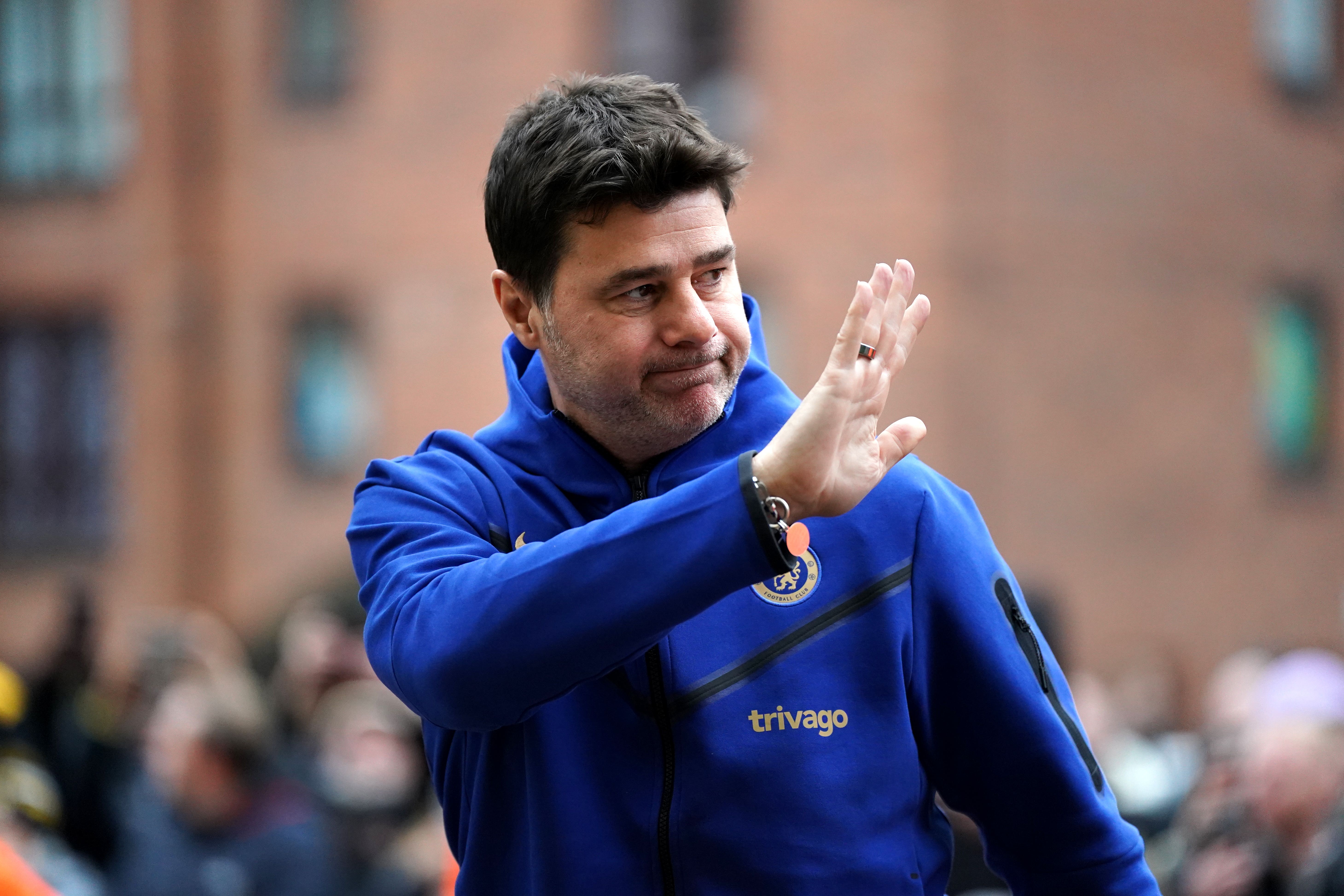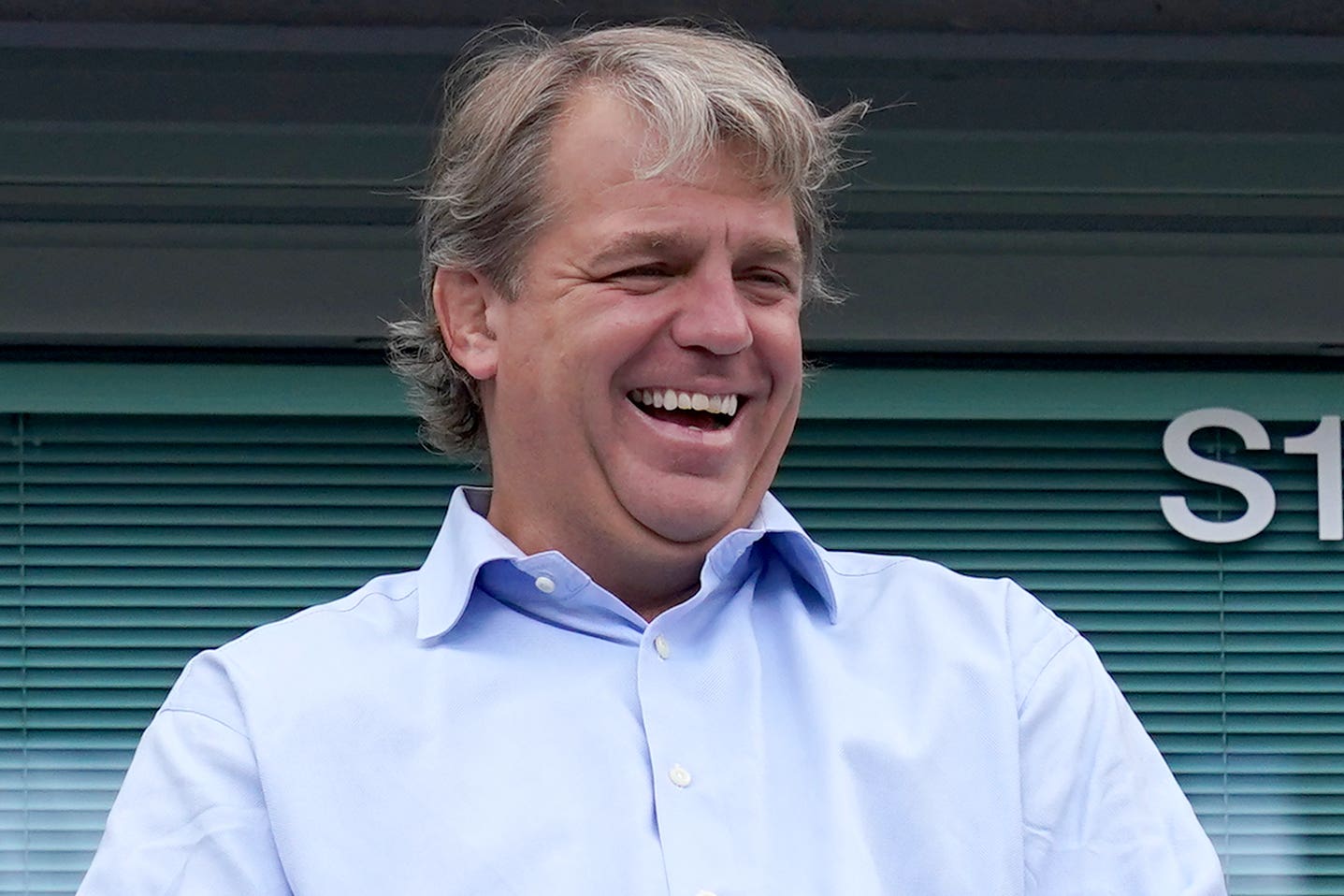Todd Boehly has turned Chelsea into a laughing stock – but his era of chaos is far from over
Mauricio Pochettino’s departure confirmed Chelsea’s place as the Premier League’s silliest club and their biggest problem remains

Your support helps us to tell the story
From reproductive rights to climate change to Big Tech, The Independent is on the ground when the story is developing. Whether it's investigating the financials of Elon Musk's pro-Trump PAC or producing our latest documentary, 'The A Word', which shines a light on the American women fighting for reproductive rights, we know how important it is to parse out the facts from the messaging.
At such a critical moment in US history, we need reporters on the ground. Your donation allows us to keep sending journalists to speak to both sides of the story.
The Independent is trusted by Americans across the entire political spectrum. And unlike many other quality news outlets, we choose not to lock Americans out of our reporting and analysis with paywalls. We believe quality journalism should be available to everyone, paid for by those who can afford it.
Your support makes all the difference.Have they ever thought the problem might be them? Obviously not, of course, because that might take a level of self-awareness or humility and the capacity to acknowledge the failings at Chelsea start at the top. But for Todd Boehly, Behdad Eghbali and the rest of Clearlake Capital consortium, the big numbers extend beyond the £1bn infamously – and often unwisely – spent on players. The first game of next season, barely two years into their reign, will see a sixth man lead Chelsea: after Thomas Tuchel, Graham Potter, Bruno Saltor, Frank Lampard and Mauricio Pochettino.
The Argentinian mustered the best win percentage in the era of chaos. He left two days after his fifth straight victory. He ranks as the most successful of Boehly and co’s three appointments; although as Potter and Lampard were different kinds of disaster, that isn’t saying much. If that scarcely inspires much confidence in their ability to get the next choice right and the underlying sense as manager after manager has collected his pay-off is that the owners think they are doing their job, only to be let down by the men in the dugout. Can the next incumbent be confident he will fare any better?
And what have the Boehly-era Chelsea actually accomplished? They have found loopholes in Financial Fair Play regulations, conjured the most expensive bottom-half finish in Premier League history (last season), and carried on spending. They have made Roman Abramovich look parsimonious in the transfer market and patient with his managers. They have made Chelsea a laughing stock. Despite stiff competition, they are the Premier League’s silliest club.

That said, the silliest sentence in Chelsea’s brief club statement of Pochettino’s departure came from the Argentinian. “The club is now well positioned to keep moving forward in the Premier League and Europe in the years to come,” he said. Really? His own slow start, like Lampard’s, suggests any successor will take time to work out what to do with Chelsea’s strangely compiled squad. Even if they eventually get better, they will first get worse again. Past evidence indicates the owners’ dealings this summer could cause fresh problems. As it is, Chelsea may need to sell to comply with the Premier League’s Profitability and Sustainability Rules. They would seem to stand very little chance of passing Uefa’s.
Meanwhile, the brains trust, in the loosest possible sense of the phrase, give the impression they believe they are the cleverest people in the footballing room. The last couple of years suggest, instead, that theirs is a strange brand of stupidity. But according to Clearlake’s website, they offer a “differentiated approach to investing through deep industry knowledge, operational expertise, flexible solutions and long-term partnerships”.
Much of which may require some rewording. They don’t have long-term partnerships with managers, even if they do contrive to give players contracts into the 2030s. Flexible solutions? Only if signing and hiring ever more people is a definition of flexibility. Operational expertise? The last two years would suggest otherwise. Deep industry knowledge? Chelsea do have a vast array of sporting directors, with various job titles, though the way they have overpaid for a variety of recruits and the negligible returns from most brings some of their knowledge into question. But, if nothing else, they do have a different approach to investing.

Which, so far, offers a reminder of the old witticism that the way to make a small fortune in football is to start out with a big one. The feeling is that Chelsea’s owners expected Champions League qualification this season. Relatively few others tipped them for a top-four finish, before a dreadful first half of the season rendered it still more improbable. Combatting unrealistic expectations can be an impossible task.
Part of the case against Pochettino lay in the defensive record, part of it in the way that, on the days it went wrong, it went very wrong. Yet one of the issues – that he is a former Tottenham manager who was unlikely to acquire popularity in the Chelsea support – was scarcely a secret when he arrived.
If the Argentinian made different noises in recent weeks, saying once it “would not be the end of the world” if he left yet also seemingly wanting the owners to publicly declare he was staying for a second season, his exit has been reported as amicable. Pochettino may be glad to be out of the madhouse even if, after Paris Saint-Germain, it is a second successive job that can lend itself to different interpretations. But now Chelsea will be someone else’s problem. And the club will have the fundamental impediment that Boehly and co don’t seem to realise they are the biggest problem.
Join our commenting forum
Join thought-provoking conversations, follow other Independent readers and see their replies
Comments